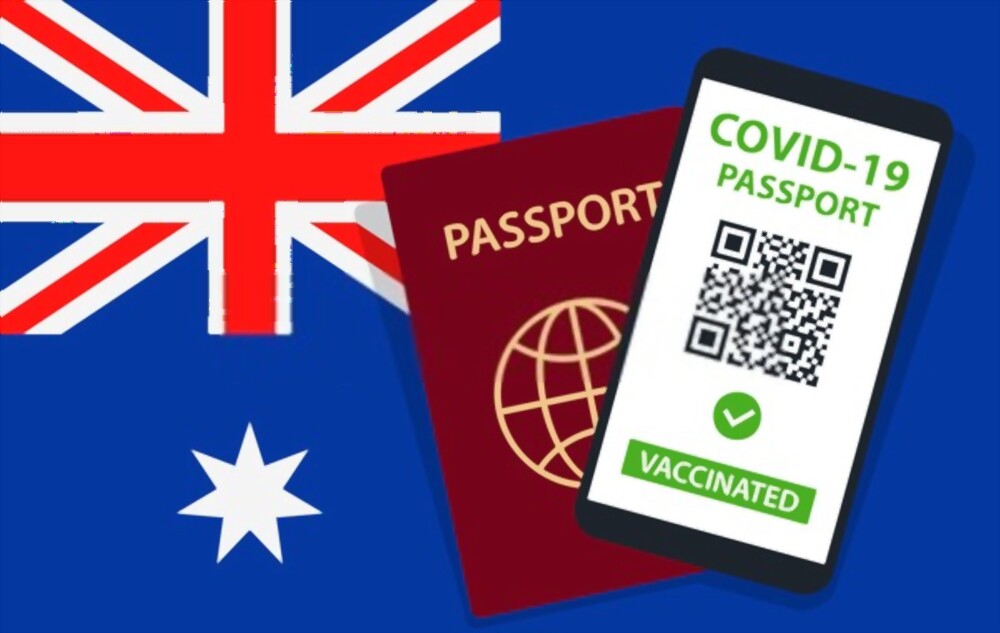The Australian states worst hit by the COVID-19 pandemic are now opening up after months of infections, lockdowns and restrictions. The vaccine rollout has gathered pace and the number of double vaccinated residents continues to grow.
However, national and state leaders are repeating the message that vaccinations are the passports (and negative PCR tests in some cases) that all eligible people now need if they want us to stay out of lockdowns and to move freely across and out of Australia.
As travel restrictions ease and infections start to lessen in the worst-hit states, proof of vaccination is vital for interstate travellers (and those who wish to venture overseas). For domestic travellers, COVID-19 digital certificates are linked to check-in apps used in the States and Territories. Read more
What Will A COVID-19 Digital Certificate Allow Me To Do?
Vaccine passports are simply certificates providing proof of vaccination for two doses of a COVID-19 vaccine. Your vaccine certificate can be accessed via the Medicare express plus app on your smartphone; the app links you to your myGov account and provides the necessary proof of vaccination. In some states, it can also be shared with your check-in app so there is no double-handling.
You may need to show your vaccine passport to move about the community, such as for travel and to access physical services and retail etc. In other words, you can live relatively normally while still adhering to health authorities' guidelines like having to wear a mask in certain situations, including public and private spaces, as well as following all the other COVID-19 infection control rules.
You may need to check in at venues, socially distance and practise enhanced hand hygiene. Only formal medical exemptions, which are very rare, will be an acceptable reason to travel or enter some premises if you have not been vaccinated.
Australia Open to International Travel
With infection numbers lessening and vaccination numbers soaring, many New South Wales communities, including Sydney, began opening up on October 11, 2021, after 106 days in lockdown. The Federal Government was keen to reopen international travel to fully vaccinated travellers and the first stage launched on November 1st. The next stage is forecast for December 1, 2021, when fully vaccinated eligible visa holders and citizens from Japan and Korea can travel to and from Australia without needing to apply for a travel exemption.
Is a COVID-19 Test Required Before Flying To And From Australia?
According to Australia’s Department of Home Affairs website, having a pre-departure PCR COVID-19 test is mandatory within 72 hours of departure before travelling into or transiting Australia, and a negative result is necessary before onward travel is permitted. Bear in mind that each country (and airlines too) have their own requirements as to testing, proof of vaccination and which COVID-19 vaccines are accepted, so the best advice is to check the Smartraveller website for the most up-to-date information or speak to your travel agent.
As with other COVID-19 restrictions and regulations, travel is affected, and rules will change as the virus moves and infections occur. Testing, vaccination status, vaccine certificates and/or vaccine passports will likely be a requirement for some time to come.
COVID Check-in Apps
As our internal borders open, Australians will have to manage many COVID-19 check-in apps on their phones if travelling between the states and territories, and they must consent to their relevant medical records being shared as proof of vaccination for vaccine passports.
Even though COVID-19 infection rates are declining in many jurisdictions, the risk will be with us, some say for years, despite an overall high rate of vaccination among our population.
What Are the Chances of Getting COVID-19 If I’m Double-Dosed?
The COVID-19 vaccines will help protect you against suffering severe illness caused by SARS-CoV-2 (coronavirus), including the Delta variant, and substantially lessens your chances of hospitalisation and death.
A double vaccinated person who suffers a vaccine breakthrough infection is far less likely to develop a serious illness than an unvaccinated person who contracts COVID-19. When fully vaccinated individuals have symptoms, they will usually be less severe than in someone who is unvaccinated and this also means they are less likely to die.
Be aware that even though you are fully vaccinated, you can still catch COVID-19 and you can therefore transmit it to others.
Is Vaxzevria Better Than Comirnaty and Spikevax?
Australian health authorities are at pains to tell people the best vaccine is the one you can have right now. All three vaccines currently available in Australia are effective against COVID-19 infection. All vaccines (and medications in general) can have side effects, some of the more serious ones relating to COVID-19 vaccines are very rare, but the benefits far outweigh the risks.
Vaxzevria
Vaxzevria (Astrazeneca) was developed from a weak version of a common cold virus modified to contain genetic material from the Coronavirus - however, it cannot cause COVID infection. It teaches your body’s immune system to recognise the virus and fight it.
Comirnaty and Spikevax
mRNA vaccines such as Comirnaty (Pfizer) and Spikevax (Moderna) instruct your cells to make a harmless piece of “spike protein.” Your immune system recognises the protein doesn’t belong there and starts building an immune response and making antibodies to fight the virus.
For more information on coronavirus, and to get your travel vaccines including getting fully vaccinated against COVID-19, call Travelvax. Then when you do get to travel freely over the world you’re well armed against potential infections, contagious diseases and parasites.
References

